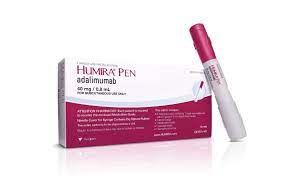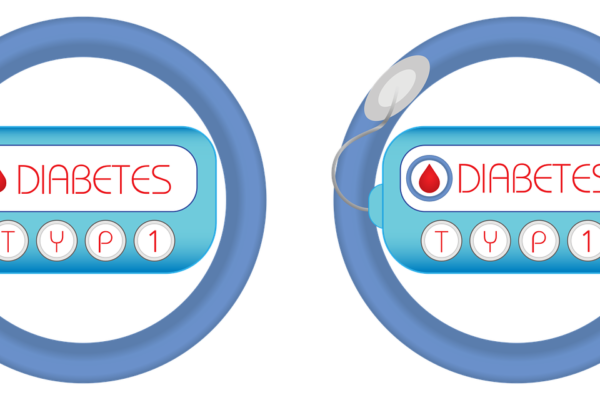Chimeric antigen receptor T-cell treatment, often known as CAR-T cell therapy, is a cutting-edge immunotherapy method used to treat specific cancers. It entails reprogramming a patient’s own immune https://healthcare.cogmain.com/category/immune-system/cells, referred to as T cells, to target and eradicate cancer cells only.
Process
T-cells are altered using Leukapheresis ( a procedure to extract T-cells ). In the lab, T cells are genetically altered to express a Chimeric antigen receptor (CAR) expression on their surface. The CAR is made to recognise an antigen, or specific protein, that is found on cancer cells.
The altered T cells are then multiplied and cultured in the lab to produce a significant number of CAR-expressing T cells.
The patient normally goes through a conditioning treatment before to the CAR-T cell injection, which may include chemotherapy or radiation therapy. The patient’s natural immune system is suppressed by this conditioning to foster an environment that is favorable for the infusion of CAR-T cells.
Then on, the patient’s blood is infused with the modified CAR-T cells when conditioning is complete. After that, the CAR-T cells move around the body, searching for and attaching to cancer cells that express the desired antigen.
The CAR on the surface of the CAR-T cells recognises and attaches to cancer cells that express the targeted antigen when they come into contact with them. This binding causes the CAR-T cells to activate, which causes the release of cytotoxic agents and the death of the cancer cells.
Following initial activation, CAR-T cells continue to grow and proliferate within the body of the patient, producing a persistent anti-cancer action. They can move to other locations to hunt down cancer cells that have metastasized.
Treatment Method
Acute lymphoblastic leukaemia (ALL) and specific forms of non-Hodgkin lymphoma are two blood malignancies that have responded remarkably well to CAR-T cell therapy. It has shown to have high rates of response and even being used in patients who have tried every other form of therapy. The targeted approach however is found to have helped minimise damage to healthy cells and tissues, reducing potential side effects compared to traditional therapies like chemotherapy or radiation and is thus a very promising alternative form of treatment. This was recognised by The American Society of Clinical Oncology (ASCO) whom awarded CAR-T cell therapy as the “Advance of the Year” in 2018 for its major contribution to the treatment of cancer.
Side Effects
Although complicated and personalised, CAR-T cell therapy has the potential to cause negative effects. Cytokine release syndrome (CRS), which can result in flu-like symptoms and, in extreme situations, organ damage and brain toxicities, is one of the more typical adverse effects.
Pharmaceutical Industry Impact
The promising alternative treatment has meant that the pharmaceutical companies are keenly interested in this area. Therefore, the estimated size of the global market for CAR-T cell treatment in 2023 was USD 2.44 billion, and it is anticipated to grow to USD 6.43 billion by 2032, with a notable CAGR of 11.37% from 2023 to 2032.
Moreover, Axicabtagene Ciloleucel, Brexucabtagene Autoleucel, Tisagenlecleucel, and others make up the drug type sector of the worldwide CAR-T Cell therapy market. Axicabtagene ciloleucel dominated the global CAR-T Cell therapy market in 2022, and it is anticipated that this pattern will hold throughout the following years. Axicabtagene ciloleucel is the active component of the drug Yescarta. The demand for Yescarta in the treatment of follicular lymphoma and diffuse large B-cell lymphoma is anticipated to fuel sector expansion throughout the forecasted time frame.
Tisagenlecleucel is anticipated to develop at the quickest rate between 2023 and 2032. The category is expanding due to a rising demand for Kymriah for acute lymphoblastic lymphoma therapy and product approval in several nations.
Due to the high number of life sciences firms concentrating on creating and marketing CAR-T Cells as well as the development of quality control systems in North America, the region dominates the CAR-T market.
The Asia Pacific CAR-T Cell Therapy Market is anticipated to grow significantly between 2023 and 2032. This can be ascribed to growing nations with commercial hubs, emerging business organisations, rising CAR-T Cell therapy awareness, enhanced healthcare infrastructure, and greater corporate investments.
Growth has been significantly supported by the resources and regulatory support provided by governmental entities and regulatory agencies. For instance, the Act on the Safety and Support of Advanced Regenerative Medical Treatment and Medicine was passed by the South Korean government in August 2020 to create a legal framework for patient safety during quality control and clinical trials and strengthen regulatory support for regenerative medicine development.
According to GlobalData, there are more than 230 businesses involved in the creation and use of CAR-T cell-based compositions, including major pharmaceutical corporations, technology vendors, and burgeoning start-ups.
Immatics is a leading CAR-T cell-based compounds patent filer. Its ACTengine programmes work by genetically modifying a patient’s own autologous T cells to produce new TCRs that can sense the cancer target on the tumour. The business owns a number of assets, including IMA203, IMA201, and IMA204. With a focus on treating different solid cancers, it is creating TCR-based immunotherapies.
Genscript Biotech is the best company in terms of application diversity, followed by Turnstone Biologics and GammaDelta Therapeutics. Geographically speaking, Otsuka is in first place, followed by Genscript Biotech and OncoTherapy Science in second and third, respectively. With Autolus having the most patents filed.
Key Market Players include Kolon TissueGene, Inc, JCR Pharmaceuticals Co., Ltd.
MEDIPOST, PHARMICELL Co., Ltd, ANTEROGEN. CO., LTD,Bristol-Myers Squibb Company, Novartis AG, Gilead Sciences, Inc, Curocell, Inc, JW Therapeutics (Shanghai) Co., Ltd, Stempeutics Research PVT LTD etc.
Alternative uses of CAR-T cells
While CAR-T cell therapy is largely used to treat cancer, research is ongoing to examine its potential uses in other types of disease. CAR-T cell therapy is being studied in the following areas:
Using CAR-T cell therapy to target and get rid of particular infectious pathogens like the human immunodeficiency virus (HIV) and Epstein-Barr virus (EBV), researchers are looking into infectious diseases. The goal is to modify CAR-T cells so that they can target infected cells and identify them, perhaps opening up new therapy options for some viral diseases.
CAR-T cell therapy is being researched as a possible treatment for autoimmune conditions, in which the immune system unintentionally destroys the body’s own healthy cells. Researchers are attempting to selectively restrict or remove autoreactive immune cells by altering CAR-T cells to target particular autoantigens, potentially providing a more specialised method of treating autoimmune disorders.
Although CAR-T cell therapy has been most effective in treating blood malignancies, initiatives are being made to expand its use to solid tumours. In order to create CAR-T cell therapies that successfully treat solid tumours, researchers are looking into strategies to get beyond the difficulties presented by the complex tumour microenvironment.
For several hereditary illnesses, CAR T- cell therapy is being studied as a potential treatment. Researchers want to offer a focused approach to treating genetic illnesses by engineering CART T cells to produce certain receptors that recognise and fix genetic abnormalities.
It’s crucial to remember that although research in these areas shows promise, more studies are required to confirm the safety and effectiveness of CAR-T cell therapy outside of the treatment of cancer. It may take some time before CAR-T cell treatments for non-cancer reasons are extensively used because they are still in the early stages of development and application.
It would be not thus be an exaggeration to say that CAR-T CELL therapy provides us with immense opportunity and potential as a means of treatment for cancer and for other avenues as well. It would be worthwhile to invest in its research and development.
References:
https://www.ncbi.nlm.nih.gov/pmc/articles/PMC4119809/
https://academic.oup.com/neuro-oncology/article/20/11/1429/4917531
https://www.transparencymarketresearch.com/car-t-cell-therapy-market.html
https://www.grandviewresearch.com/industry-analysis/t-cell-therapy-market






Leave a Reply